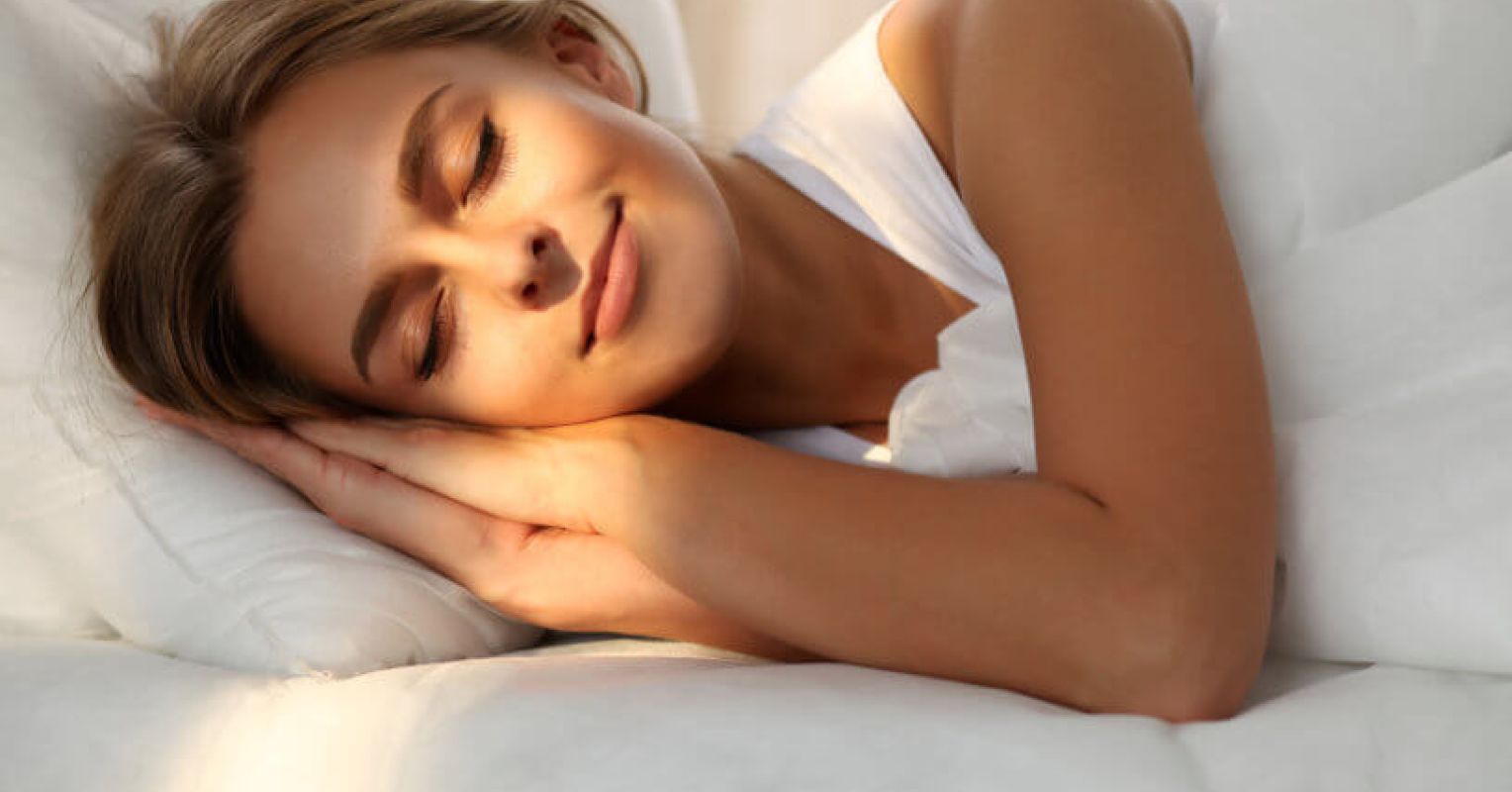Advanced Sleep Therapy - Accomplish Deep, Relaxed Sleep
Advanced Sleep Therapy - Accomplish Deep, Relaxed Sleep
Blog Article
Effective Treatment Solutions for Taking Care Of Sleep Disorders and Enhancing Relaxing Rest
In the world of medical care, the management of sleep conditions and the quest for restful sleep are crucial parts of general health. As we browse the elaborate landscape of sleep conditions and look for to improve our rest experience, a deeper understanding of these therapy services might hold the trick to unlocking a much more refreshing and fulfilling restorative journey.
Cognitive Behavior Modification for Sleeping Disorders (CBT-I)
Cognitive Behavior Therapy for Sleeplessness (CBT-I) is a structured, evidence-based therapy approach that concentrates on dealing with the underlying aspects adding to sleep disturbances. This kind of therapy aims to modify habits and thoughts that worsen insomnia, eventually advertising healthy and balanced sleep patterns. CBT-I usually involves several essential components, consisting of cognitive therapy, rest limitation, stimulation control, and sleep health education.
Cognitive therapy aids individuals recognize and transform unfavorable idea patterns and beliefs concerning sleep that may be preventing their capacity to fall or remain asleep. Rest limitation entails limiting the amount of time invested in bed to match the person's actual sleep period, thus boosting sleep performance (insomnia therapy). Stimulus control techniques aid develop a solid association in between the bed and sleep by encouraging people to go to bed just when sleepy and to stay clear of participating in promoting tasks in bed
In addition, rest hygiene education concentrates on creating healthy and balanced sleep routines, such as keeping a consistent sleep schedule, producing a relaxing bedtime routine, and maximizing the sleep setting. By resolving these elements adequately, CBT-I provides an effective non-pharmacological treatment for handling sleeplessness and improving total sleep quality.
Rest Hygiene Practices
Having actually established the foundation of cognitive restructuring and behavioral alterations in addressing insomnia with Cognitive Behavior modification for Insomnia (CBT-I), the focus now changes in the direction of exploring vital Rest Hygiene Practices for maintaining ideal sleep high quality and general well-being.
Sleep hygiene techniques encompass a variety of practices and ecological elements that can considerably affect one's capacity to drop off to sleep and stay asleep throughout the night. Constant sleep and wake times, developing a relaxing going to bed regimen, and enhancing the rest atmosphere by maintaining it dark, silent, and cool are essential parts of excellent rest health. Restricting direct exposure to screens prior to bedtime, preventing stimulants like high levels of caffeine near going to bed, and taking part in normal physical activity throughout the day can likewise promote better sleep quality.
Moreover, practicing leisure strategies such as deep breathing workouts or reflection prior to bed can aid soothe the mind and prepare the body for sleep. By including these rest hygiene techniques into one's day-to-day routine, people can establish a healthy and balanced rest pattern that sustains relaxing rest and general wellness.
Leisure Strategies and Mindfulness
Executing relaxation strategies and mindfulness methods can play a pivotal duty in promoting a sense of tranquility and advertising top quality rest. natural insomnia remedies. These strategies intend to peaceful the mind, lower stress, and develop an ideal atmosphere for peaceful sleep. One extensively practiced technique is deep breathing exercises, where individuals focus on slow, deep breaths to loosen up the body and mind. Progressive muscular tissue relaxation includes tensing and afterwards releasing each muscular tissue group, promoting physical relaxation. Additionally, directed imagery can assist carry people to a relaxed place in their minds, aiding in anxiety decrease and boosting sleep high quality.
By incorporating these methods into a going to bed regimen, individuals can signify to their bodies that it is time to prepare and take a break for sleep. Overall, integrating relaxation methods and mindfulness techniques can considerably contribute to managing sleep conditions and boosting general sleep top quality.

Medication Options for Sleep Disorders
After discovering leisure techniques and mindfulness practices as non-pharmacological treatments for enhancing rest quality, it is important to think about medication choices for people with rest disorders. In cases where way of life adjustments and treatment do not provide adequate alleviation, medication can be a beneficial tool in taking care of sleep disturbances.
Typically suggested drugs for rest disorders consist of benzodiazepines, non-benzodiazepine hypnotics, antidepressants, and melatonin receptor agonists. Antidepressants, such as trazodone, can be helpful for people with co-occurring clinical depression and rest disturbances - sleep disorder treatment.
It is critical for people to seek advice from a health care company to establish the most suitable medication alternative based on their specific sleep problem and medical background.
Light Therapy for Body Clock Policy
Light treatment, also referred to as photo-therapy, is a non-invasive treatment approach utilized to regulate body clocks and boost sleep-wake cycles. This treatment includes exposure to bright light that mimics natural sunlight, which assists to reset the body's biological rhythm. By subjecting individuals inspire apnea to specific wavelengths of light, commonly in the early morning or evening relying on the wanted impact, light therapy can efficiently change the circadian rhythm to promote wakefulness throughout the day and boost relaxing sleep in the evening.
Study has revealed that light therapy can be particularly helpful for individuals with body clock problems, such as delayed rest stage syndrome or jet lag. It can also be practical for those experiencing seasonal affective condition (SAD), a kind of anxiety that commonly happens throughout the winter season months when all-natural light exposure is reduced. Light treatment is typically Get More Info well-tolerated and can be utilized along with other therapy approaches for sleep disorders to maximize end results and improve general rest quality.
Verdict
To conclude, reliable treatment options for handling rest problems and boosting relaxed rest consist of Cognitive Behavior modification for Sleeping Disorders (CBT-I), sleep hygiene techniques, leisure strategies and mindfulness, medication choices, and light treatment for circadian rhythm policy. These techniques can aid people boost their sleep top quality and general well-being. It is important to speak with a doctor to determine one of the most suitable strategy for attending to sleep concerns.
As we browse the elaborate landscape of rest problems and seek to enhance our rest experience, a deeper understanding of these therapy options might hold the secret to unlocking an extra refreshing and fulfilling corrective journey.
Sleep restriction involves limiting the quantity of time spent in bed to match the individual's actual sleep duration, consequently click over here raising sleep effectiveness. Constant rest and wake times, developing a relaxing bedtime regimen, and enhancing the sleep environment by maintaining it dark, quiet, and cool are vital components of good rest hygiene. Light therapy is typically well-tolerated and can be used in conjunction with various other therapy techniques for sleep problems to enhance outcomes and improve total sleep quality.

Report this page